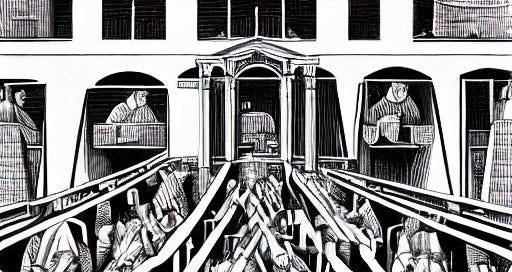A year after my visit with Jason, in early autumn in Tulsa, I play back the tape of our conversation. It’s low-grade. I brought my PX370 on the trip—what passes for preparation in my world.
Through the recording I hear the wind, faint remarks from friend-groups enjoying a light Sunday in Estabrook Park. Carefree. I felt, talking to Jason, part of another place.
“I always remind myself, man—there’s a saying I remember,” I hear him tell me. “Prophet Muhammad said that, Always look to those inferior than you. And not, like, above you. Always look to those lower than you. And then you can recognize that what you’re going through is not really a problem at all.”
Jason’s life story is filled with people many of us—certainly someone with my background; my upbringing—see as lower. Addicts, ISIS sympathizers, minimum-wage workers, corrections officers. The petty criminals he ran with as a teenager; the prisoners who, like him, spent years in the cage.
One man’s story, in particular, haunted me. It was his cellmate, a young Muslim, at USP McCreary. “He’d be telling me he be hearing stuff, seeing stuff,” Jason recalled. “Gets to crying once in a while—like, for no damn reason.”
“He talks about he sees djinns,” he went on. “Like, spirits and shit.” And he refused to eat: “he has a constant paranoia about—his food’s being fucked with.”
The FBI brought a case—like Jason’s—against this man: attempting to support ISIS. His name is Emanuel Lutchman.



